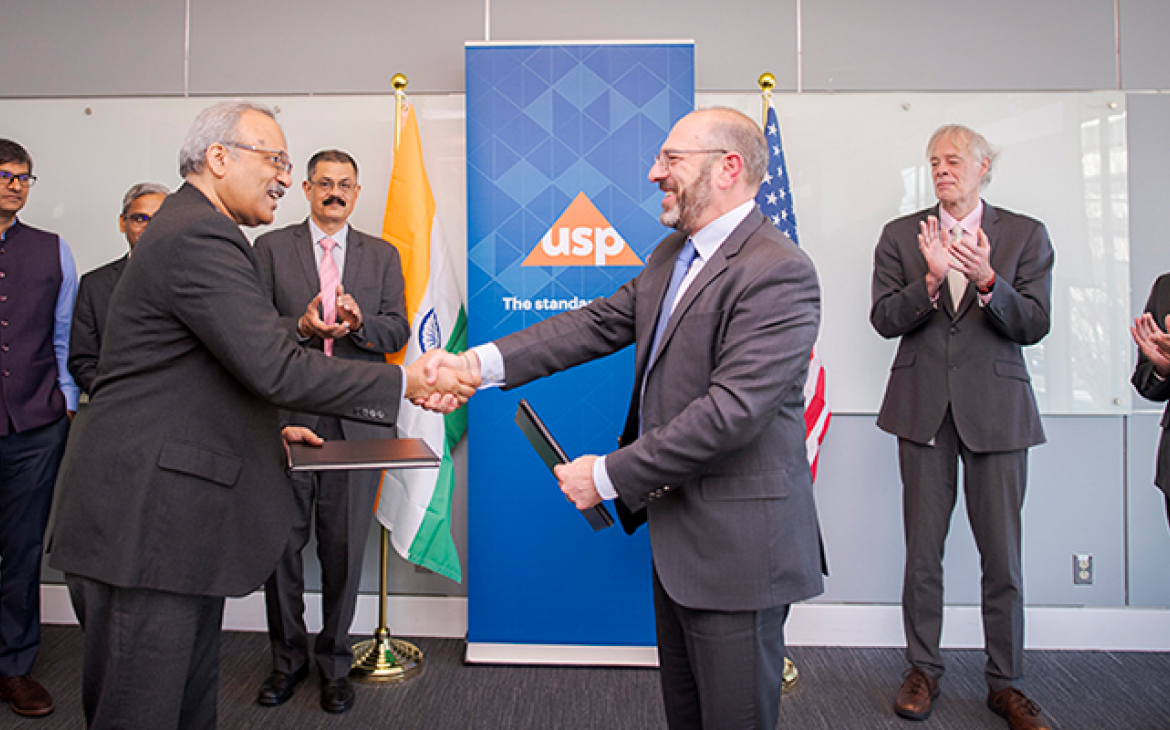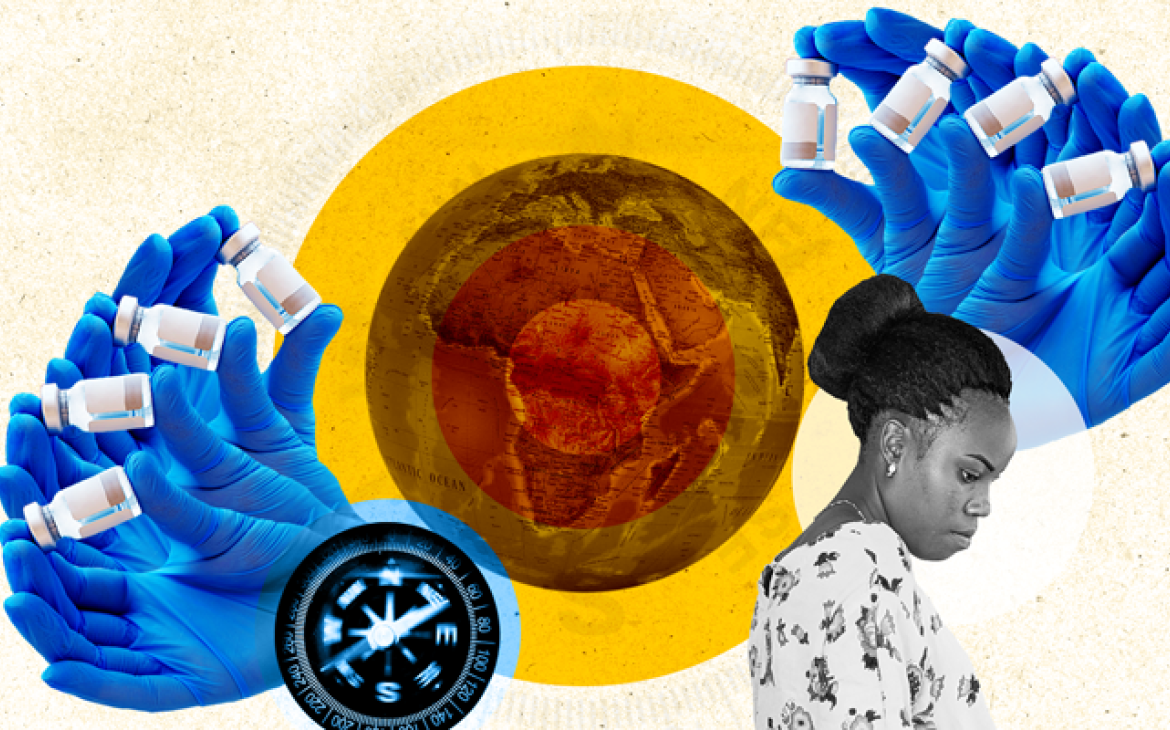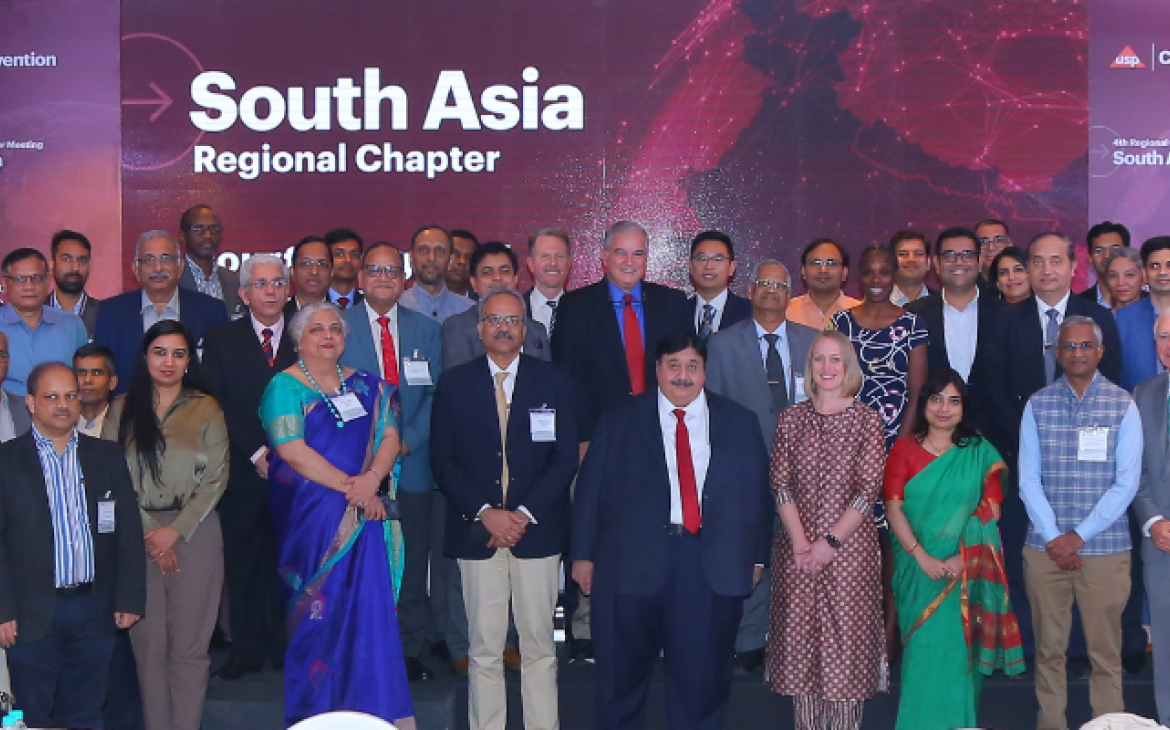
The COVID-19 pandemic exacerbated vulnerabilities in the global medicines supply chain, leading to shortages, price volatility, and medicines quality issues—factors that also increase the risk the risk for substandard and falsified medicines.
USP Regional Chapters convene Convention Member representatives from a geographic region to discuss important issues, share knowledge and experience, and collaborate to advance common priorities. In June 2022, USP convened the Asia Pacific Regional Chapter Meeting, with over 100 participants. One of the key discussions of the first day centered on supply chain resiliency. Ruth Lee, Associate Director, Public Policy & Regulatory Affairs at USP Singapore, kicked off the meeting and John Lim, Executive Director at Duke-NUS Center of Regulatory Excellence (CoRE) and Chair of the USP APAC Regional Chapter, welcomed all participants. Ronald Piervincenzi, Chief Executive Officer of USP, then shared in his remarks that most supply chain disruptions have a root in quality, whether it is during manufacturing, distribution, storage, or administration to the patient.
Three key points were highlighted in support of supply chain resiliency and quality assurance:
- Ability to manufacture locally and regionally to build trust and expertise
- Importance of developing skills and capabilities across markets to de-risk supply chains
- Urgency of developing and adopting standards that are widely accessible
The notion of trust and transparency underpins these three points. As regulators cannot solve global supply chain issues alone, exchanging information is a first step towards driving collaboration.
The subsequent panel discussion, moderated by Kavitha Nallathambi, Senior Global Public Policy Manager at USP, focused on how to help ensure supply chain resiliency and lessons learned from the COVID-19 pandemic. Panelists included Jennifer Burnett, Assistant Secretary of the Manufacturing Quality Branch, amongst other colleagues, from the Australian Therapeutic Goods Administration, Sannie Chong, who leads regulatory policy for Asia Pacific at Roche, and Brett Marshall, Corporate Head, Quality Assurance & Health, Safety, Security, and Environment (HSSE) at Zuellig Pharma—representing the regulatory, industry, and distribution sides, respectively.
Below are four key takeaways that ensued from the panel discussion:
- Demand is an important driver of drug shortages. The pandemic led to such consequences as stockpiling and off-label use of medications. To mitigate shortages, we need tools to identify fluctuations in demand quickly and effectively.
- Stakeholders need to remain agile and adapt to new ways of working to meet fluctuating demand without compromising quality. For example, distributors were largely able to pivot quickly to adapt to COVID-19 vaccine storage and temperature requirements. Regulatory flexibility to support local manufacturing was another example.
- Dialogue and collaboration are critical with all players along the supply chain. During the pandemic, we have seen unprecedented collaboration between regulators and manufacturers, including the willingness to share information.
- Data and technology can help us anticipate shortages and adapt faster, whether it is through digitization, standards, track-and-trace mechanisms to monitor the quality of medicines more accurately, or block chain methods.
We can learn from best practices implemented by different stakeholders to build supply chain resilience, which will also be crucial to strengthening health systems and preparing for the next pandemic.
These discussions will help to inform work USP is undertaking in understanding international regulatory reforms undertaken during the COVID-19 pandemic and share best practices and policy recommendations on strengthening supply chain resilience. Learn more about USP’s work to build a more resilient supply chain at usp.org/supply-chain.


